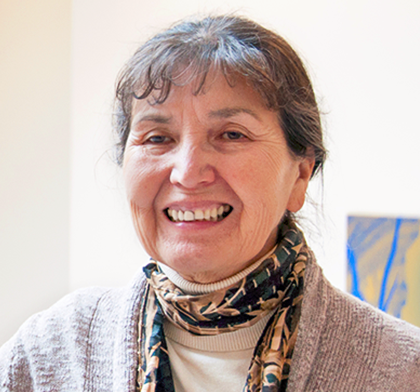Board Of Directors
Lewis Williams, Founding Director and Chair
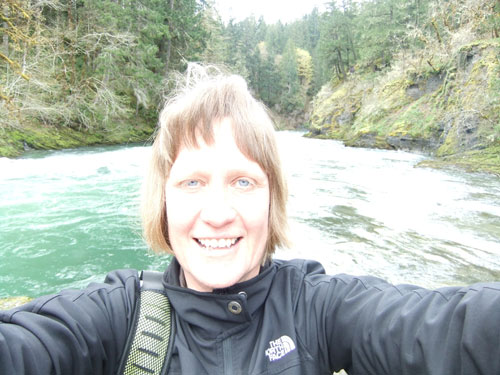 Ko Mataatua te Waka, Ko Mauao te Maunga, Ko Tauranga te Moana, Ko Ngai Te Rangi te Iwi, Tihei Mauriora! Born in Tamaki Makaurau (Auckland), Aotearoa New Zealand, Lewis is a scholar, community organizer, and social innovator. Of Ngai Te Rangi and Scottish (Isle of Arraine) origins, she is committed to the resurgence of Indigenous communities and worldviews and recovery of Indigenous ways of being within all peoples in ways that contribute to human-planetary well-being. This ethos has been key in guiding her work over the past decade in particular, and includes her founding of the Koru International Network (KIN), the publication “Radical Human Ecology: Intercultural and Indigenous Approaches” (2012, 2016), and her previous work as an Associate Professor of Indigenous Studies at the University of Saskatchewan. She is currently working on a book “Intergenerational Resilience as a De-colonial practice” and is particularly interested in the role of Indigenous Feminist ontologies within this work. In a previous professional life she founded the organization Women Experiencing Eating Difficulties and helped to co-found a women’s centre at Carrington hospital, Auckland. More about Lewis can be found at www.kalewiswilliams.com
Ko Mataatua te Waka, Ko Mauao te Maunga, Ko Tauranga te Moana, Ko Ngai Te Rangi te Iwi, Tihei Mauriora! Born in Tamaki Makaurau (Auckland), Aotearoa New Zealand, Lewis is a scholar, community organizer, and social innovator. Of Ngai Te Rangi and Scottish (Isle of Arraine) origins, she is committed to the resurgence of Indigenous communities and worldviews and recovery of Indigenous ways of being within all peoples in ways that contribute to human-planetary well-being. This ethos has been key in guiding her work over the past decade in particular, and includes her founding of the Koru International Network (KIN), the publication “Radical Human Ecology: Intercultural and Indigenous Approaches” (2012, 2016), and her previous work as an Associate Professor of Indigenous Studies at the University of Saskatchewan. She is currently working on a book “Intergenerational Resilience as a De-colonial practice” and is particularly interested in the role of Indigenous Feminist ontologies within this work. In a previous professional life she founded the organization Women Experiencing Eating Difficulties and helped to co-found a women’s centre at Carrington hospital, Auckland. More about Lewis can be found at www.kalewiswilliams.com
Shiloh Groot
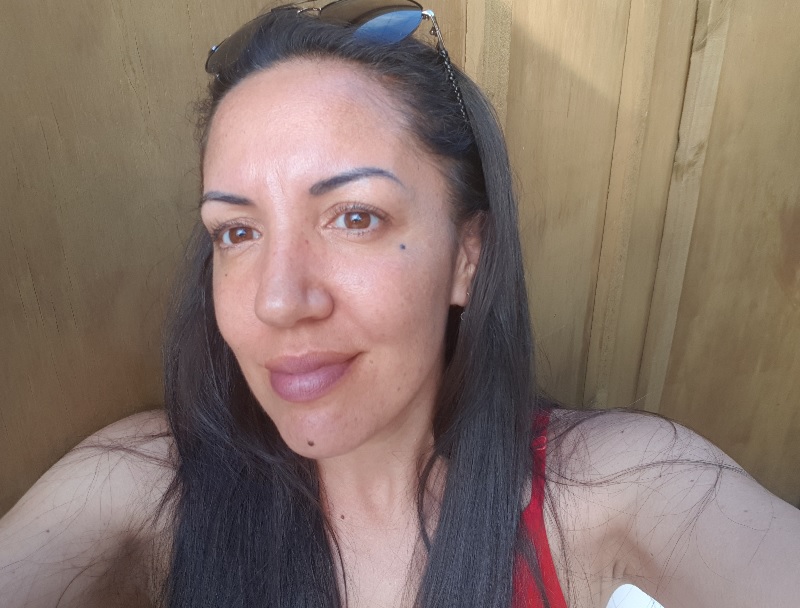 Nō Ngāti Uenukukōpako, nō Ngāti Pikiao a Shiloh Groot. Shiloh is an interdisciplinary social scientist who works in the domains of Indigenous worldviews and communities, resilience, urban poverty and health. Their primary area of research for the past decade has been homelessness, the sharp edge of poverty in Aotearoa New Zealand. Māori are over represented in the homelessness population, as such; their research reflects interwoven themes of Indigeneity, culture, resilience and resistance, and socio-economic exclusion. Shiloh is a long-standing member and former co-chair to the Tangata Whenua Caucus of the New Zealand Coalition to End Homelessness where they inform the development of national policy and service provisions to address homelessness. Shiloh is a senior lecturer in Social Psychology at the University of Auckland, Aotearoa New Zealand.
Nō Ngāti Uenukukōpako, nō Ngāti Pikiao a Shiloh Groot. Shiloh is an interdisciplinary social scientist who works in the domains of Indigenous worldviews and communities, resilience, urban poverty and health. Their primary area of research for the past decade has been homelessness, the sharp edge of poverty in Aotearoa New Zealand. Māori are over represented in the homelessness population, as such; their research reflects interwoven themes of Indigeneity, culture, resilience and resistance, and socio-economic exclusion. Shiloh is a long-standing member and former co-chair to the Tangata Whenua Caucus of the New Zealand Coalition to End Homelessness where they inform the development of national policy and service provisions to address homelessness. Shiloh is a senior lecturer in Social Psychology at the University of Auckland, Aotearoa New Zealand.
Ullrich Kockel
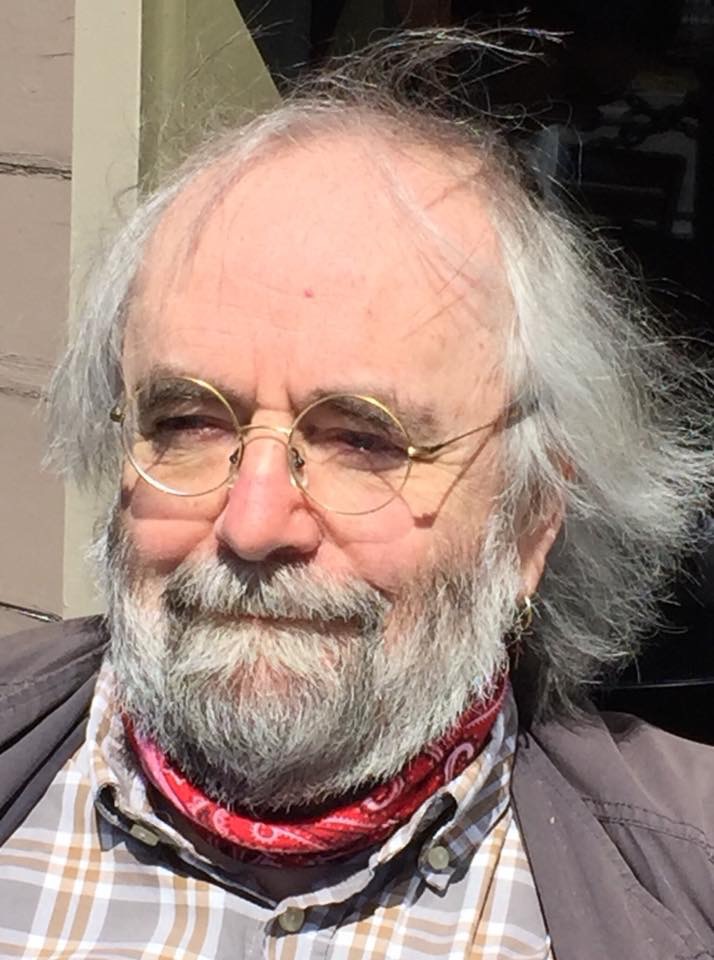
Having previously worked in the oil industry, Ullrich has held various teaching and research positions across a range of humanities and social science disciplines in Britain, Germany and both parts of Ireland since the mid-1980s,. Throughout the 1990s, while based at the University of Liverpool, he worked closely with the European Centre for Traditional and Regional Cultures, and in 2000 was appointed to a chair in European Studies at the University of the West of England, Bristol. His research and publications range across disciplinary and cultural boundaries, with focus on tradition, place, community resilience, and indigeneity, primarily in European contexts.
Nicole Paul
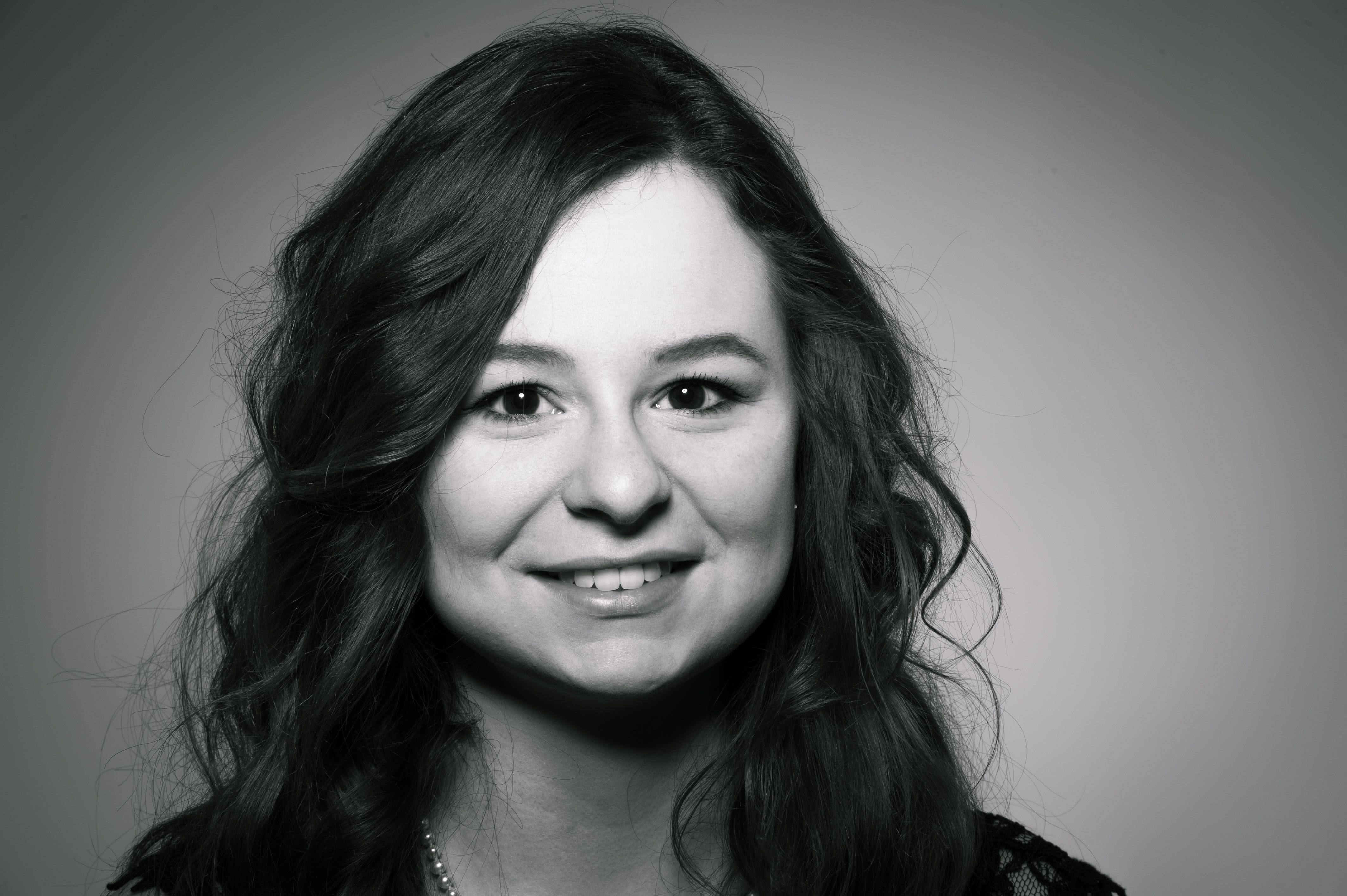 Nicole Paul is a Métis visual artist with her ancestry being of Cree and Sioux origins from her fathers side and European from her mothers.
Nicole Paul is a Métis visual artist with her ancestry being of Cree and Sioux origins from her fathers side and European from her mothers.
Currently, Nicole is enrolled at the University of Melbourne undertaking her MFA Visual Arts and Indigenous Arts and Culture. Nicole has studied traditional painting and restoration theory through the International Institute for Restoration and Preservation Studies in San Gemini, Italy.
Nicole has used her artwork to explore her aboriginal heritage, present day conflicts of aboriginal people and the Indigenous issues being faced globally. Her work creates conversations towards reconciliation and cultural revitalisation by encouraging intergenerational knowledge transmission, resilience and cultural reclamation.
Her work has earned national awards and accreditations such as the Governor Generals History award. Nicole has worked and studied under various Indigenous artists, The School of Public Health, and various organisations to develop knowledge mobilisation projects. She has worked in partnership with the Saskatoon Tribal council on The Child Taken Project; a collaborative commemorative art project designed to honour the generations of children who were separated from their families. This work is now part of a national archive for the Truth and Reconciliation Commission of Canada.
Jeannette Armstrong
Jeannette Armstrong is Syilx Okanagan, a fluent speaker and teacher of the Nsyilxcn Okanagan language and a traditional knowledge keeper of the Okanagan Nation. She is a founder of En’owkin, the Okanagan Nsyilxcn language and knowledge institution of higher learning of the Syilx Okanagan Nation. She currently is Assistant Professor and Canada Research Chair in Indigenous Okanagan Philosophy at UBC Okanagan. She has a Ph.D. in Environmental Ethics and Syilx Indigenous Literatures. She is the recipient of the Eco Trust Buffett Award for Indigenous Leadership and in 2016 the BC George Woodcock Lifetime Achievement Award. She is an author whose published works include poetry, prose and children’s literary titles and academic writing on a wide variety of Indigenous issues. She currently serves on Canada’s Traditional Knowledge Subcommittee of the Committee on the Status of Endangered Wildlife in Canada.
Danielle Alphonse
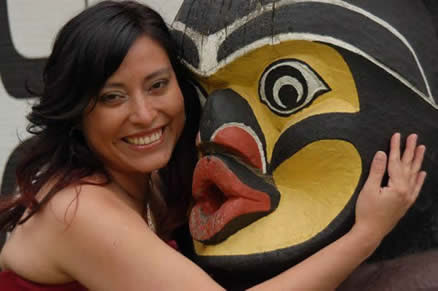 Danielle Alphonse is the British Columbia Regional Innovation Chair in Aboriginal Early Childhood Development. She holds a Master's in Educational Leadership - VIU, a BA in Child and Youth Care - UVIC, and an Early Childhood Education & Care Diploma - VIU.
Danielle Alphonse is the British Columbia Regional Innovation Chair in Aboriginal Early Childhood Development. She holds a Master's in Educational Leadership - VIU, a BA in Child and Youth Care - UVIC, and an Early Childhood Education & Care Diploma - VIU.
Danielle is from the Cowichan Tribes, lives in Duncan, Vancouver Island and is faculty at Vancouver Island University. She has worked for many years in Aboriginal Education in early childhood/child care settings (infants and toddlers), First Nations Education (FNED) in Victoria working with children in kindergarten as well as high school level students regarding cultural awareness, and as an Aborginal Supported Child Development Consultant (ASCD) at a Victoria agency providing services to urban Aboriginal families. Danielle is in her fourth year as the BCRIC for AECD and is working on a number of exciting community-based initiatives.
Tracey Bunda
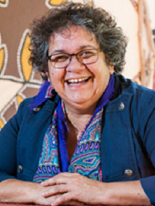 Professor Tracey Bunda is a Ngugi/Wakka Wakka woman and the Head of the College for Indigenous Studies, Education and Research at the University of Southern Queensland. She has three decades of experience working in Aboriginal and Torres Strait Islander higher education. Professor Bunda will, in March 2018, be a Distinguished Visitor at the University of Auckland, New Zealand. She is currently working on 2 books that address 1. Research through and with stories (as co-author with Louise Phillips) and 2. Activist voices of marginalized (First Nations and coloured) women from the US and Australia (as 1 of 4 editors). Both books will be available in 2018. Professor Bunda’s research
Professor Tracey Bunda is a Ngugi/Wakka Wakka woman and the Head of the College for Indigenous Studies, Education and Research at the University of Southern Queensland. She has three decades of experience working in Aboriginal and Torres Strait Islander higher education. Professor Bunda will, in March 2018, be a Distinguished Visitor at the University of Auckland, New Zealand. She is currently working on 2 books that address 1. Research through and with stories (as co-author with Louise Phillips) and 2. Activist voices of marginalized (First Nations and coloured) women from the US and Australia (as 1 of 4 editors). Both books will be available in 2018. Professor Bunda’s research
investigates the intersectionalities of race and power and she is particularly interested in the ways in which Aboriginal women’s agentic power can be brought to bear.
Oliver Schmidtke
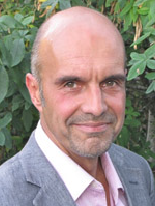 Oliver Schmidtke is the Director, Centre for Global Studies and a Professor in the Departments of Political Science and History at the University of Victoria where he also holds the Jean Monnet Chair in European History and Politics. He received his PhD from the European University Institute (EUI) in Florence. He taught at the Humboldt University Berlin before joining UVic in 2000 and has been a visiting scholar at Harvard University, Bonn University, the European University Institute, and Hamburg University. Oliver Schmidtke’s research interests are in the fields of comparative European politics and contemporary history, European integration, the political sociology of migration, integration and ethnic conflict, and the role of identities and collective memory in modern societies. His most recent book publications are: Falge, C., Ruzza, C. and Schmidtke, O. (2012). Giving New Subjects a Voice. Political and Institutional Responses to Cultural Diversity in the Health Care System. Ashgate.
Oliver Schmidtke is the Director, Centre for Global Studies and a Professor in the Departments of Political Science and History at the University of Victoria where he also holds the Jean Monnet Chair in European History and Politics. He received his PhD from the European University Institute (EUI) in Florence. He taught at the Humboldt University Berlin before joining UVic in 2000 and has been a visiting scholar at Harvard University, Bonn University, the European University Institute, and Hamburg University. Oliver Schmidtke’s research interests are in the fields of comparative European politics and contemporary history, European integration, the political sociology of migration, integration and ethnic conflict, and the role of identities and collective memory in modern societies. His most recent book publications are: Falge, C., Ruzza, C. and Schmidtke, O. (2012). Giving New Subjects a Voice. Political and Institutional Responses to Cultural Diversity in the Health Care System. Ashgate.
Kikila Perrin
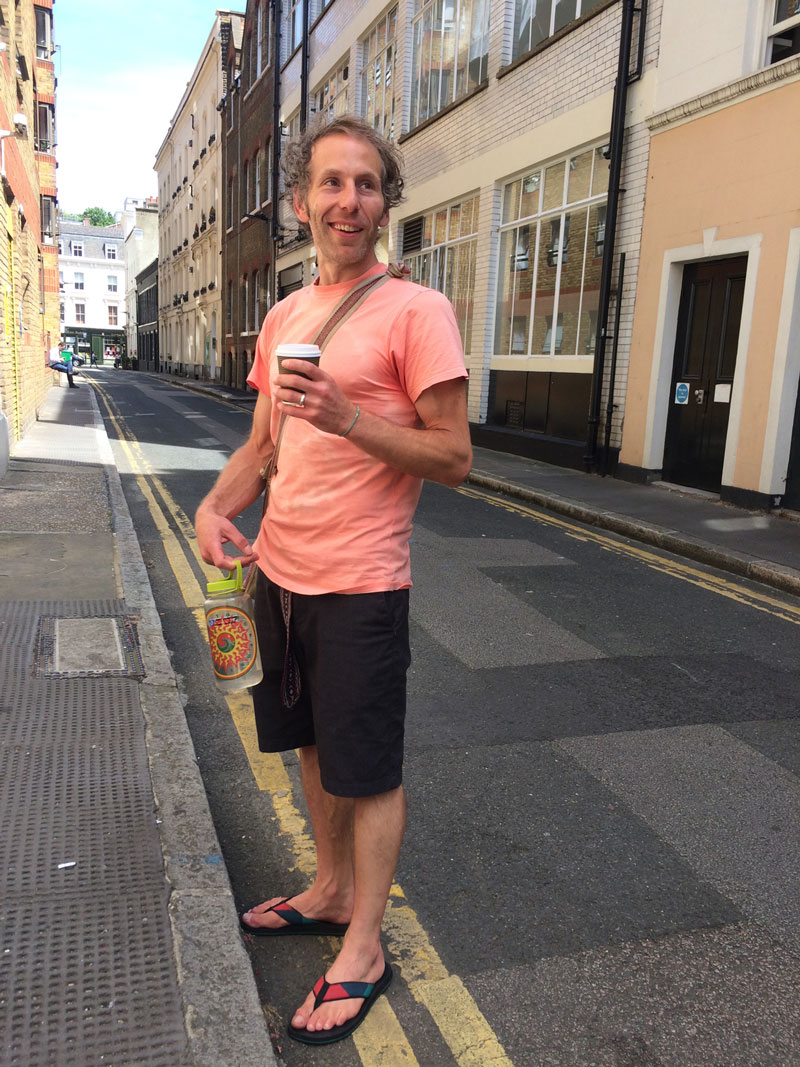 Kikila is a settler of primarily western European descent, and grew up in Osheaga (Montreal, on traditional Mohawk territories) before moving to Matulia (Victoria, BC, on the traditional territories of the W̱SÁNEĆ and L’kwungen peoples) with his partner in 2015. Currently working on his PhD at the University of Victoria, he holds a Masters of Arts (Cultural History) from Concordia University, where he was an associate with the Centre for Oral History and Digital Storytelling (2011-13). Having worked as a volunteer in Gulu, Uganda, and in Aotearoa where he performed an ambassadorial role for the Soul Surfers Foundation, Kikila became deeply impacted by the concept of decolonization, and through those intercultural experiences, seeks to work towards decolonization on Turtle Island through his participation in AIR. He has served on the Editorial Advisory Committee for the Graduate History Review (UVic) from 2016 to 2018, is a member of an Indigenous Solidarity Working Group (Metulia), and is the community & development coordinator for the Habitat Acquisition Trust. Kikila passes his time surfing and playing music.
Kikila is a settler of primarily western European descent, and grew up in Osheaga (Montreal, on traditional Mohawk territories) before moving to Matulia (Victoria, BC, on the traditional territories of the W̱SÁNEĆ and L’kwungen peoples) with his partner in 2015. Currently working on his PhD at the University of Victoria, he holds a Masters of Arts (Cultural History) from Concordia University, where he was an associate with the Centre for Oral History and Digital Storytelling (2011-13). Having worked as a volunteer in Gulu, Uganda, and in Aotearoa where he performed an ambassadorial role for the Soul Surfers Foundation, Kikila became deeply impacted by the concept of decolonization, and through those intercultural experiences, seeks to work towards decolonization on Turtle Island through his participation in AIR. He has served on the Editorial Advisory Committee for the Graduate History Review (UVic) from 2016 to 2018, is a member of an Indigenous Solidarity Working Group (Metulia), and is the community & development coordinator for the Habitat Acquisition Trust. Kikila passes his time surfing and playing music.
Arianna Waller
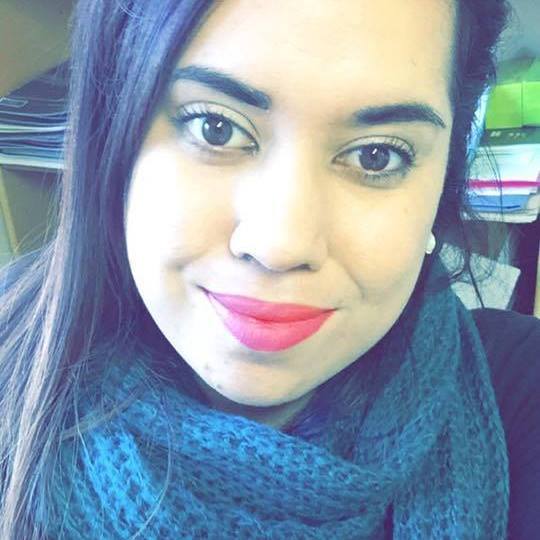 Ko Mauao te maunga, Ko Tauranga te moana, Ko Ngāi Te Rangi me Ngāti Ranginui ngā iwi, No Tauranga moana ahau. Tihei Mauriora!
Ko Mauao te maunga, Ko Tauranga te moana, Ko Ngāi Te Rangi me Ngāti Ranginui ngā iwi, No Tauranga moana ahau. Tihei Mauriora!
Arianna is from Tauranga and has tribal affiliations to Ngāi Te Rangi and Ngāti Ranginui. She completed her thesis http://hdl.handle.net/10289/10735 in 2016 and works as part of the Māori Health Workforce Development Unit at the University of Otago, New Zealand. Arianna is passionate about Māori youth development and actively participates in indigenous advocacy and research. Her background is in sociology, policy and community based research.
Fergus Walker
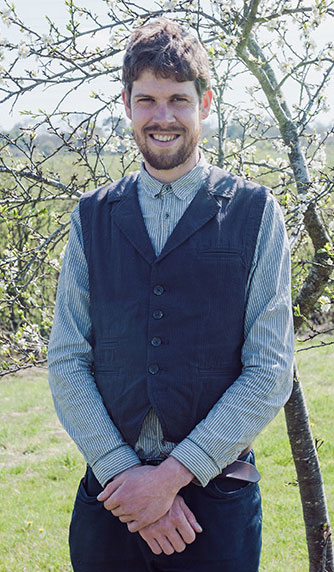 Fergus Walker grew up on the family croft on the Isle of Skye before going on to study boat building and product design. He coordinated the Seed Truck - a Scotland-wide mobile education programme run by sustainable food project the Fife Diet - encouraging people to explore their food culture by producing their own food. He is co-founder of Common Good Food, a new charity helping set up community-run food production across Scotland and developing training and tools for Scotland's new crofters.
Fergus Walker grew up on the family croft on the Isle of Skye before going on to study boat building and product design. He coordinated the Seed Truck - a Scotland-wide mobile education programme run by sustainable food project the Fife Diet - encouraging people to explore their food culture by producing their own food. He is co-founder of Common Good Food, a new charity helping set up community-run food production across Scotland and developing training and tools for Scotland's new crofters.
